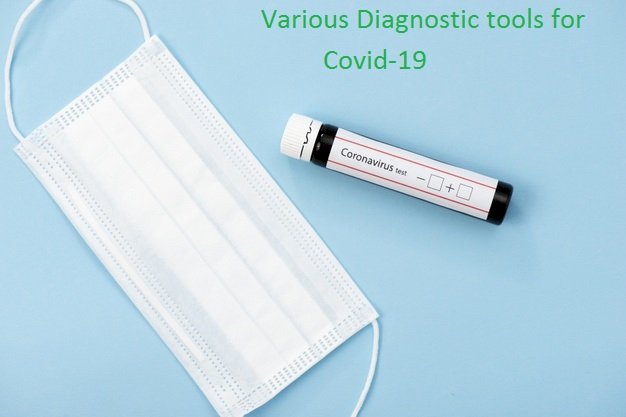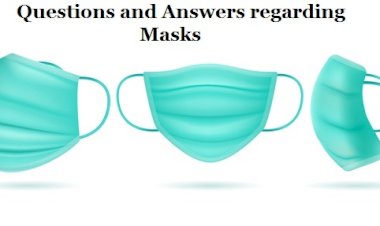Various Diagnostic tools for Covid-19

During COVID-19 pandemic there is shortage of laboratory based molecular testing capacity and reagents. So many of multiple diagnostic test manufactures have developed and begun selling rapid and easy to use device to testing outside of laboratory settings. These simple devices are based on either detection of protein from the covid-19 virus in respiratory samples like sputum or throat swab or detection in blood or serum of human antibodies generated for infection.
However these kits must be validated in the populations and setting, and also not sure about these kits sensitivity and specificity. At present, based on current evidence, The WHO recommends the use of these new point-of-care immunodiagnostic tests only in research settings. They should not be used in any other setting, including for clinical decision-making, until evidence supporting use for specific indications are available.
Rapid diagnostic test based on antigen detection:
The rapid diagnostic test (RDT) detects the presence of virus antigen in respiratory tract of a person expressed by COVID-19 virus. If the antigen is present in sufficient concentration it will bind to specific antibodies fixed to a paper strip enclosed in a plastic casing and generate a visually detectable signal, within 30 minutes. The antigen will detect only if virus is replicating, therefore, such tests are best to identify acute or early infection.
The test depends on many factors like the time on onset of illness, concentration of virus in the sample, the quality of sample collected from person, process of taking sample and also formulation of reagents in the kits. The sensitivity of these tests might be expected to vary from 34% to 80%.
Based on current sources, half or more of COVID-19 infected persons might be missed by such tests. So these assumptions urgently need to further check if they are accurate or not. The antibodies on the strip also recognize antigens of viruses other than COVID-19, such as human corona virus that cause the common cold. If any of the antigen detection tests are under development or demonstrate adequate performance, they could be used as triage tests to rapid identify patients who are most likely to have COVID-19.
Due to these kits low sensitivity , the WHO doesn’t recommended these kind of antigen-detecting RDT for patients care, still research into their performance and potential diagnostic utility is encouraged.
Rapid Diagnostic tests based on host antibody detection:
There is another, common type of RDT are available for COVID-19 which detects the presence of antibodies in the blood of people infected with COVID-19. Antibodies are produced by body after few days to weeks of infection. The strength of antibody response depends on many factors, including age, nutritional status, severity of diseases and certain medication or infection like HIV that suppress the immune system. Some people with COVID-19, disease confirmed by molecular testing like reverse transcription polymerase chain reaction-RT-PCR. Studies suggest that the majority of patients develop antibody response only in the second week after onset of symptoms. Its mean antibody detects test kits can diagnose only in recovery phase. It can also cross react with other pathogens including human coronavirus and give false positive result. There is no evidence to date to support this.
Tests to detect antibody response to COVID-19 in the population will be helpful to develop vaccines, and to add our understanding of the extent of infection among people who are active case finding and surveillance efforts. Such tests have limited utility because they cannot quickly diagnose acute infection. Some clinicians have used these tests for presumptive diagnosis of recent COVID-19 disease in cases where molecular testing was negative but where there was a strong link to COVID-19 infection.
Based on current information the WHO does not recommend the use of antibody detecting RDT for patient care but encourage the continuation of work to established their use in surveillance and epidemiologic research.
Next Steps:
- Molecular (PCR) testing of respiratory tract samples is the recommended method for the identification and laboratory confirmation of COVID-19 cases. COVID-19 molecular diagnostic are developed for quality and safety through the WHO.
- To inform WHO policy on the immunodiagnostic rapid tests for COVID-19, the WHO is still working with our global laboratory expert network, and closely reviewing the results of laboratory and clinical studies planned and implemented by reference laboratories, academic groups and non-governmental organizations.
- WHO listed two COVID-19 tests for emergency use, both are in vitro diagnostics, the tests are genesig Real-Time PCR Coronavirus (COVID-19) and cobas SARS-CoV-2 Qualitative assay for use on the cobas® 6800/8800 Systems.
The genesig Real-Time PCR Coronavirus (COVID-19) (Primerdesign, United Kingdom) is an open system more suitable for laboratories with moderate sample testing capacity, while the cobas® SARS-CoV-2 for use on the cobas® 6800/8800 Systems (Roche, United States of America) is a closed system assay for larger laboratories.
Reference: - WHO Official Website








































Comments (0)